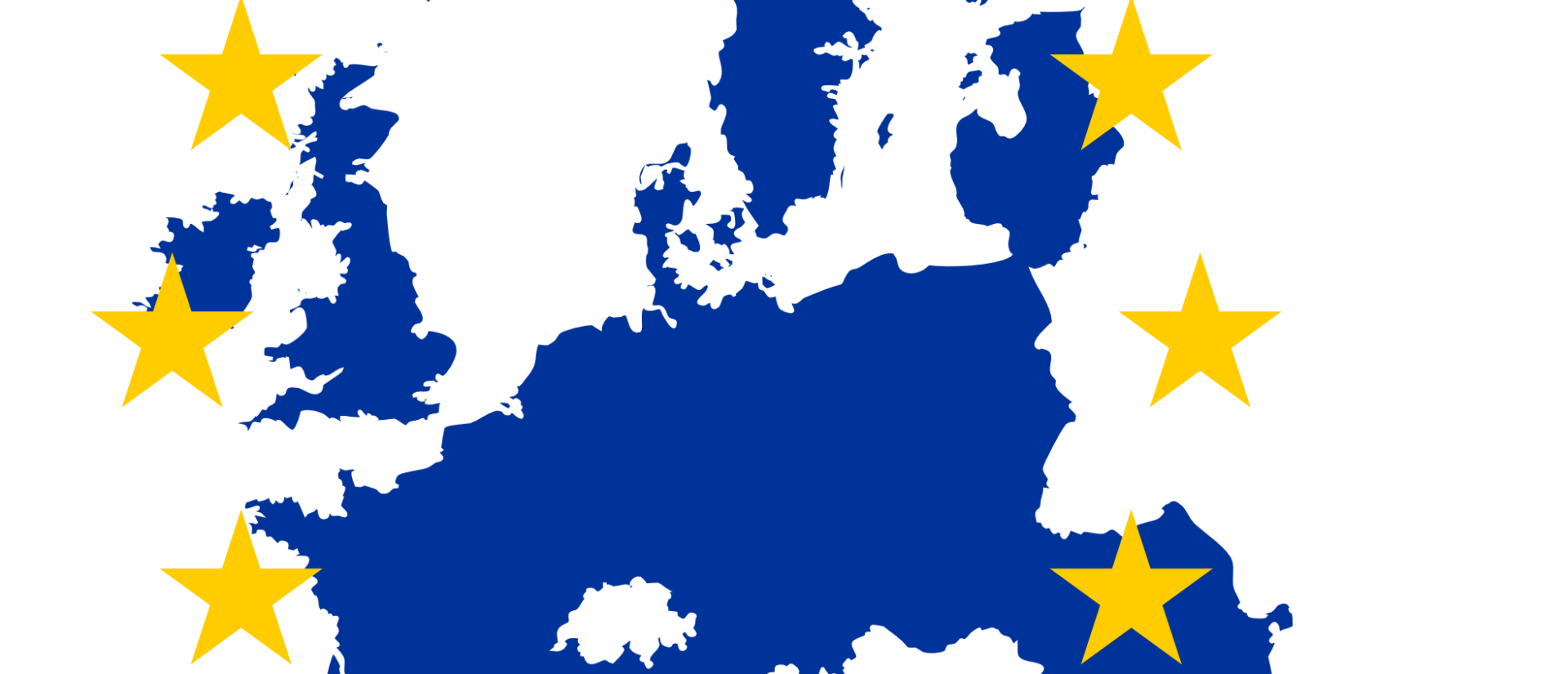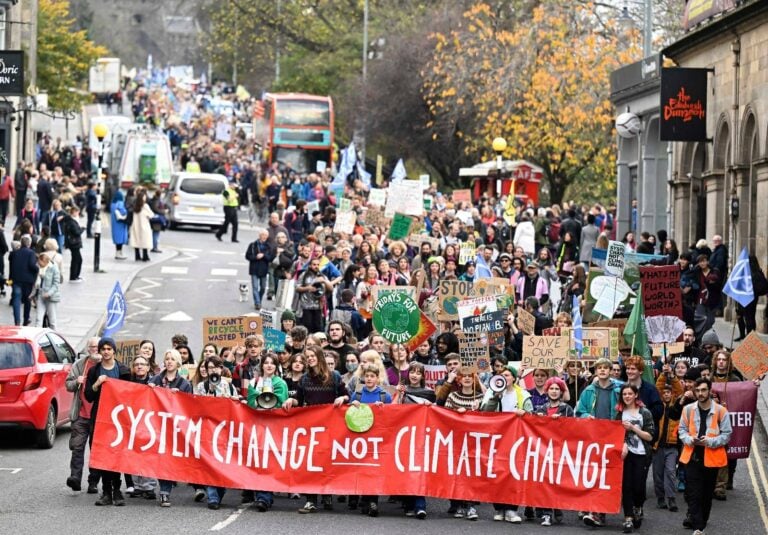
No Happy New Year for the EU
By Peter Wahl, WEED
At the beginning of the new year, the economic figures for the EU are anything but brilliant. The permanent and multiple crises, which had started with the financial crash in 2008 and engendered a dramatic crisis of public finance in the Mediterranean with tremendous human costs, will not end in 2015. The IMF’s recent Economic Outlook(opens in new window) from 20 January has once again reduced its October 2014 growth forecast for the Euro area by 0.2% for 2015 and 0.3% for 2016. The IMF is now expecting 1.2% growth for 2015 and 1.4% for 2016. This is less than half the rate of the US and not enough to overcome Europe’s economic problems. Nor will modest overall growth in the world be a very supportive environment. But the meagre growth rate is not the only problem:
- The currency union is at the brink of deflation, as the core inflation rate (excluding volatile prices such as for food and energy) shrunk in January 2015 by 0.6%.
- Average unemployment in the Euro-zone is high at 11%, while in some countries youth unemployment remains extremely high.
- The Euro has drastically depreciated vis à vis the US dollar, while several other currencies are also very volatile and under pressure from financial markets, including the Swiss franc, the Australian dollar and the Russian rouble.
- Stock markets have become extremely volatile, which means that investors and speculators are swiftly changing strategies and moving money.
- Sanctions against Russia affect trade and investment, with consequences for growth and jobs inside the EU, while an economic crisis in Russia could have contagion effects for the world economy.
On the other hand, the fall of the oil price is working like a stimulus programme. For Germany, for instance, the effect is estimated at 0.3% of the GDP or some $ 12 billion. However, as a major oil producer, the UK will suffer. All in all, the Eurozone continues on its path towards a lost decade.
Will quantitative easing and the “Juncker Plan” turn the tide?
The only institution that currently seems to dispose of some leverage over the economic problems is the ECB. Thanks to the “one country one vote” principle, the ECB sidelined the permanent resistance of the Bundesbank to implement policies with a Keynesian touch, thus preventing more chaos. In order to react to the deflationist pressure, the ECB announced(opens in new window) on 22 January a programme that will pump € 60 billion per month into the Euro financial system by September 2016 – to the tune of a considerable € 1.4 trillion overall.
Each of the national central banks will buy up, in their own countries, for instance, bonds issued by governments in the Euro area and owned by banks with the aim of stimulating banks to provide more credit for the economy.
However, similar actions in the past have not succeeded in kick-starting a recovery. Already in 2010, the ECB launched its Security Markets Program (SMP), buying public bonds in the secondary market for € 210 billion until 2012. In 2011, the ECB started injecting € 1 trillion into the banking system for three years at very low interest rates. In the summer of 2014, Frankfurt decided to buy covered bonds and asset-backed securities (ABS) in order to stimulate the economy and fight deflation.
But as long as domestic demand is kept weak as a result of austerity policies and “fiscal discipline”, the scope of the ECB initiatives will be limited. This represents the difference to the US, where quantitative easing was accompanied by complementary deficit spending on the part of the government.
In order to stimulate growth, the European Commission has launched the so-called “Juncker Plan”. This aims to increase investment, which has been lacking for several years. Investment in the EU has dropped(opens in new window) by 15% since 2007, and, in some of the crisis countries, even significantly more. However, there remains scepticism as to whether it will work. First, the amount is too small; € 315 billion is 1.7% of the GDP and the money will be stretched over three years, meaning only some € 105 billion per year. Secondly, it is unclear whether the full amount can be raised, as the investment programme has just € 21 billion in its own resources (through the European Investment Bank), while this amount would have to be multiplied 15 times if coming from private investors.
Greece: austerity paradigm at stake
Greece took centre stage with the Greek elections, which resulted in Syriza coming into power. Long before the elections, many economists argued that the Greek debt rate, which has increased from 107.4% of the GDP in 2007 to ca. 180% in 2014 (around € 320 billion) is unsustainable and that such a debt will never be paid back.
As a first step, the new government in Athens suspended cooperation with the Troika, pointing at the Berlin-Brussels-Amsterdam type of crisis management that has precipitated the country into a human and economic disaster. Then Prime Minister Tsipras and Finance Minister Varoufakis toured EU capitals for a week in order to seek a new deal for Greece. While the French and Italian government showed sympathy for the plea of more investment, they did not risk an open opposition to the official EU position that there would be no haircut. German Finance Minister Schäuble said that Greece must press on with budget- cutting commitments(opens in new window) made under its existing €172 billion bailout.
On the other side, the Greeks received support not only from Nobel Prize laureates such as Stiglitz and Krugman. US President Obama himself voiced open critique of the EU: “You cannot keep on squeezing countries that are in the midst of depression(opens in new window) .”
That same week, the ECB showed how it can use its financial power by cancelling the possibility of Greece using its bonds as collateral to provide Greek banks with liquidity from the ECB. This means that Greek banks have to seek liquidity elsewhere at a higher interest rate. This puts additional pressure on Greek banks and on the government to keep to the austerity and debt repayment programme. Even German mainstream media qualified this as “adding fuel to the flames(opens in new window) .” Indeed, the current bailout extension for Greece is due to expire on 28 February 2015.
In order to deal with the most urgent matter of keeping public finance and the banking system running, the Greek government is asking for bridging finance until the end of May to prepare detailed plans for talks between Greece and Eurozone partners to end austerity. In a first reaction, the head of the Euro Group, Dutch Finance Minister Dijsselbloem, bluntly replied “We don’t do bridge loans.” The Greek government has backtracked from its initial demands for a debt write– down, but wants a restructuring of both the debt and the conditions. It decided to raise the minimum wage and pension funds, and stop a $ 25 billion privatisation, some of the conditions of the Troika. But it will enforce more strictly the condition to crack down on tax evasion by the rich and eliminate the influence of the powerful interest groups (“oligarchs”) that dominate important sectors.
The outcome of the conflict is uncertain. Looking simply at the economic balance of power, Greece is at the mercy of the EU. However, a collapse of the Greek economy and an exit from the Euro is not in the interest of the EU. Although the economic price might be tolerable for the rest of the EU, the political price would be far too high. As a last resort, the country might even threaten to seek help from Russia. The new foreign minister has already talked about his country becoming a bridge between the EU and Russia. In so far, Greece disposes of coercive deficiency, as game and conflict theory would describe the balance of power, and a compromise is not excluded.
Extraordinary political problems
The problem-solving capacity of the EU is under additional stress due to extraordinary political challenges, such as a possible referendum over EU membership following the UK elections in May. Also the independence of Catalonia from Spain remains on the agenda with a quasireferendum in September.
Furthermore, the wave of new right wing populist parties has now also reached Germany. The new party AfD (Alternative for Germany) received between 9% and 12% in elections in three federal states, thanks to its strong Euro scepticism on neoliberal and nationalist grounds.
The war in Ukraine is also an enormous economic and political burden, creating internal tensions and a direct external threat with unforeseeable consequences if a political solution is not found soon.
Taken all together, these challenges are overstraining the capacities of EU governance structures. The warnings – among others in this newsletter – that there is no “pure” economy and that economic and social crises will sooner or later spill over into politics is now unfortunately coming true. 2015 will see extraordinary challenges for the Euro-zone and the EU as a whole. Whatever the outcome will be, the EU will no longer be the same in 2016.
Do you need more information?
-

Myriam Vander Stichele
Senior Researcher
Partners
Related news
-
Why share buybacks are bad for the planet and peoplePosted in category:Opinion
 Myriam Vander StichelePublished on:
Myriam Vander StichelePublished on: Myriam Vander Stichele
Myriam Vander Stichele -
 The Netherlands: European champion share buybackPosted in category:Long read
The Netherlands: European champion share buybackPosted in category:Long read Rodrigo FernandezPublished on:
Rodrigo FernandezPublished on: -
 The trillion-dollar threat of climate change profiteersPosted in category:Long read
The trillion-dollar threat of climate change profiteersPosted in category:Long read Myriam Vander StichelePublished on:
Myriam Vander StichelePublished on:

